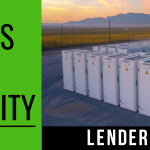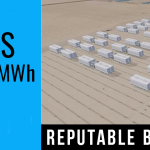
Every year, committees in the U.S. Congress get together to give an additional lease on life to tax breaks through special legislation, a process known as “tax extenders”. And for the past few weeks, rumors have been circulating that this year’s tax extenders bill could include an extension of the U.S. Investment Tax Credit (ITC) to energy storage, as has been proposed in separate legislation.
This now looks like wishful thinking, as no such provision is in the tax extenders mark put forth by the House Ways and Means Committee. The latest version includes a one-year extension of the Production Tax Credit (PTC) for wind and the renewal of credits for what American Council on Renewable Energy (ACORE) describes as “orphan” renewable energy technologies, but no mention of energy storage.
“The House Ways and Means Committee extenders mark is a modest start to a really important near-term opportunity,” states ACORE CEO Greg Wetstone. “While an extra year of the wind PTC and renewal of the orphan renewable technologies are to be welcomed, this year’s extenders process should not conclude without the inclusion of a tax credit for energy storage and other critical measures to help combat climate change and decarbonize the grid.”
Energy storage and the ITC
To be clear, energy storage projects can currently claim the ITC – but only if they can show that they are charged with solar, and not conventional sources. To make matters more complicated, there are different rules for residential and commercial systems. As explained in a fact sheet by Solar Energy Industries Association (SEIA):
Current IRS guidance regarding eligibility of storage to receive the federal solar ITC is unclear. The IRS has concluded that storage systems owned by homeowners must derive 100% of their power from an onsite solar array to qualify for the ITC. The IRS previously said storage systems owned by businesses apply a different rule, as those systems would be eligible for the ITC only if at least 75% of the charging of the storage unit is provided through solar generation.
SEIA explains that this is not a good solution for energy storage, or the grid. “Requiring the owner of storage technologies to account for the source of their energy imposes an unreasonable burden and undermines certainty,” argues SEIA. “It also expressly prohibits most of the grid services a solar plus storage system can provide to grid operators to help with resiliency.”





